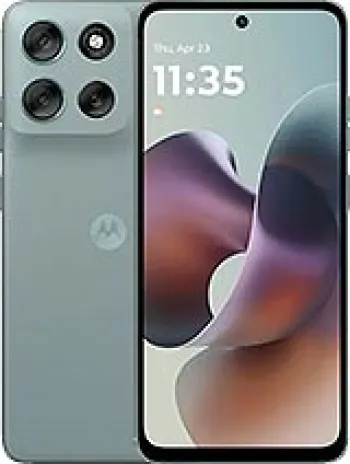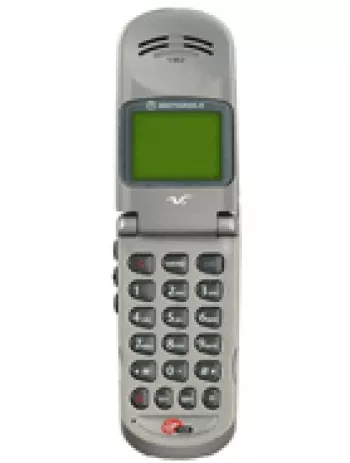
Network Technology
The Motorola W220 utilizes the GSM technology standard, specifically supporting 2G bands GSM 900 and 1800. It offers basic mobile communication capabilities without advanced data connectivity features such as EDGE, although it does support GPRS class 8 for basic Internet usage, allowing users to send and receive messages and browse simple websites.
Launch and Availability
Announced in February 2006, the Motorola W220 was positioned as a budget-friendly mobile phone for users who needed basic functionalities. Despite its popularity at the time, the phone was eventually discontinued, reflecting the evolving technology landscape and consumer demand for more feature-rich devices.
Body and Design
The Motorola W220 is recognized for its compact and practical design, measuring 95 x 46 x 16.7 mm and weighing just 93 grams, making it an easy device to carry and use. Its lightweight nature and small size made it attractive to users who prioritized portability. The device supports a Mini-SIM, which was standard for phones during its time.
Display
Featuring a 1.6-inch CSTN display with 65K colors, the screen of the W220 offers a resolution of 128 x 128 pixels. With a 1:1 aspect ratio and around 113 pixels per inch density, the display is simple yet sufficient for basic phone functions like making calls and sending SMS. The screen-to-body ratio stands at approximately 18.9%, highlighting its focus on functionality over entertainment.
Memory
The Motorola W220 comes with an internal storage of 500 KB, enough for essential phone operations and storing up to 600 phonebook entries. While it does not feature a card slot for expandable memory, users can keep track of up to 10 dialed, 10 received, and 10 missed calls, aligning with its fundamental mobile phone role.
Camera
The device does not include a camera, which is consistent with its position as a basic phone model. During its release period, phones with cameras were available but typically at a higher price point and with more advanced features than the W220 offered.
Sound and Alerts
The Motorola W220 lacks a loudspeaker and a 3.5mm audio jack, signaling its simplicity. However, it provides various alert types, including vibration and downloadable polyphonic ringtones, with a limited capacity to compose ringtones, allowing users to personalize their alert sounds to some extent.
Communications
For communication, the W220 is equipped with FM radio—a popular feature for many users at the time, providing entertainment and news on the go. Bluetooth and WLAN capabilities are absent, indicating its basic functionality focus. The device also does not incorporate GPS positioning or USB connectivity.
Features and Functionality
The Motorola W220 is positioned as a feature phone with no advanced sensors. It supports basic messaging options including SMS, EMS, and MMS. The WAP 2.0/xHTML browser capability is enough for very basic web browsing. In terms of games, the phone includes titles such as Football, Rebels, and Crazy, adding a level of simple entertainment to the device’s offerings. The absence of Java indicates limited application support.
Battery Life
The removable Li-Ion battery with an 880 mAh capacity provides the W220 with impressive longevity, capable of stand-by times up to 290 hours and talk time of up to 8 hours, ensuring the device can support typical daily usage without frequent recharging.
Miscellaneous and Pricing
The Motorola W220 was offered at an approximate price of 50 EUR, reflecting its position in the market as a budget-friendly option. The specific color offerings were varied, catering to diverse user preferences in terms of aesthetics.
Conclusion
In summary, the Motorola W220 served as a reliable and economical mobile phone option in the mid-2000s, delivering essential communication functionalities and simplicity in design and operation. Despite lacking modern features seen in contemporary devices, it met the fundamental needs of users during its time, maintaining Motorola's reputation for producing robust and user-friendly devices.
Primary Features of Motorola W220
- Compact dimensions of 95 x 46 x 16.7 mm, making it easy to carry and handle.
- Lightweight design at only 93 g, ensuring portability.
- GSM technology support for basic telecommunications.
- 1.6 inches CSTN display with 65K colors for vibrant visuals.
- Large phonebook capacity storing up to 600 entries.
- Includes FM radio for entertainment on the go.
- Long battery life with up to 290 hours standby and 8 hours talk time.
- Affordable price approximately 50 EUR.
- Supports SMS, EMS, and MMS messaging services.
Disadvantages of Motorola W220
- No EDGE support for faster internet connectivity
- Discontinued model, which may lack support and availability
- Small screen size with low resolution
- Internal memory limited to 500 KB with no card slot for expansion
- No camera features available
- Absence of loudspeaker
- No 3.5mm headphone jack
- No Bluetooth connectivity
- No WLAN support
- No USB connectivity
- Lacks GPS functionality
- Limited Java support

View Also
More Phones
All Rights Reserved +14266 Phones © Mobilawy 2025

























